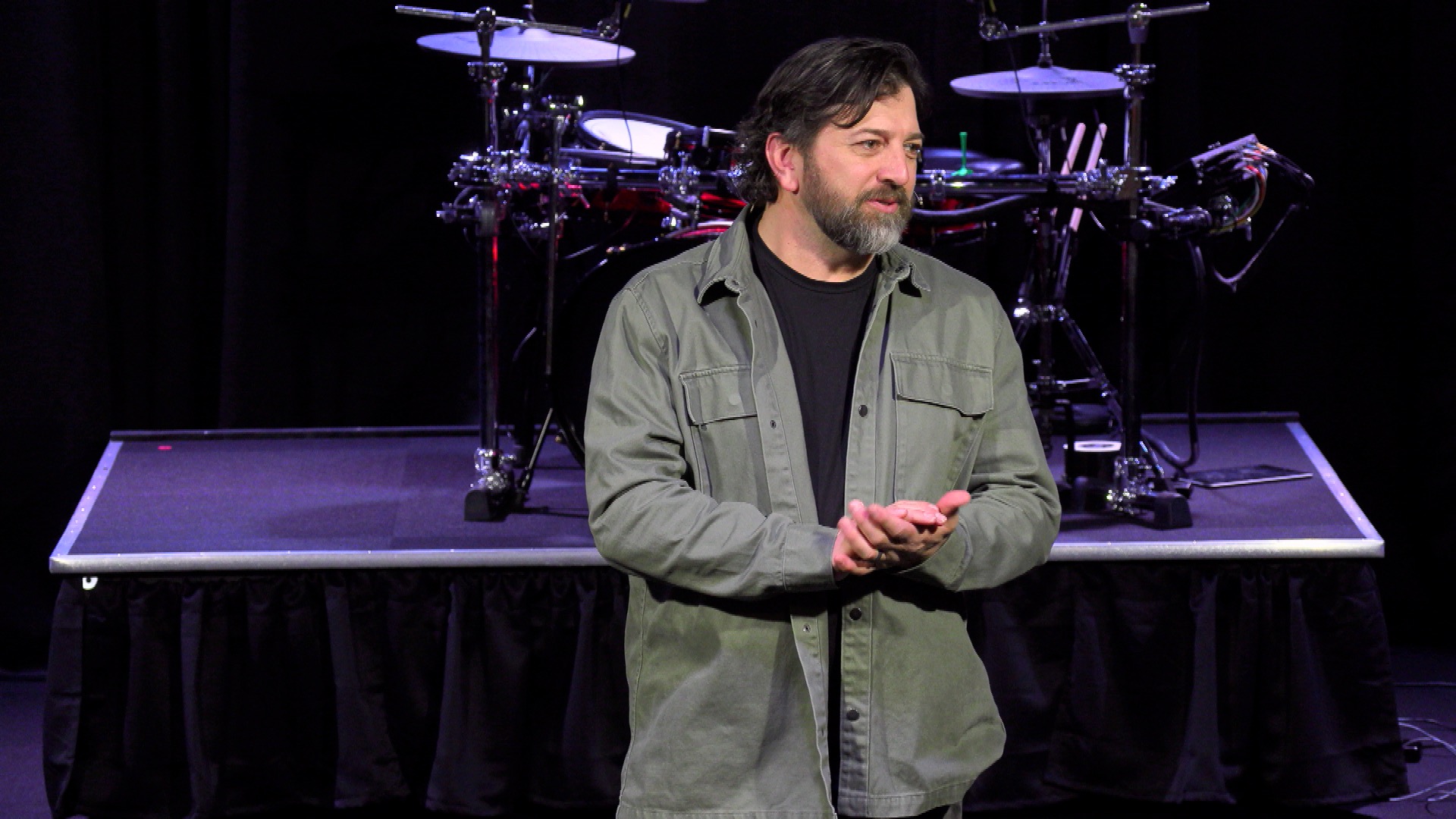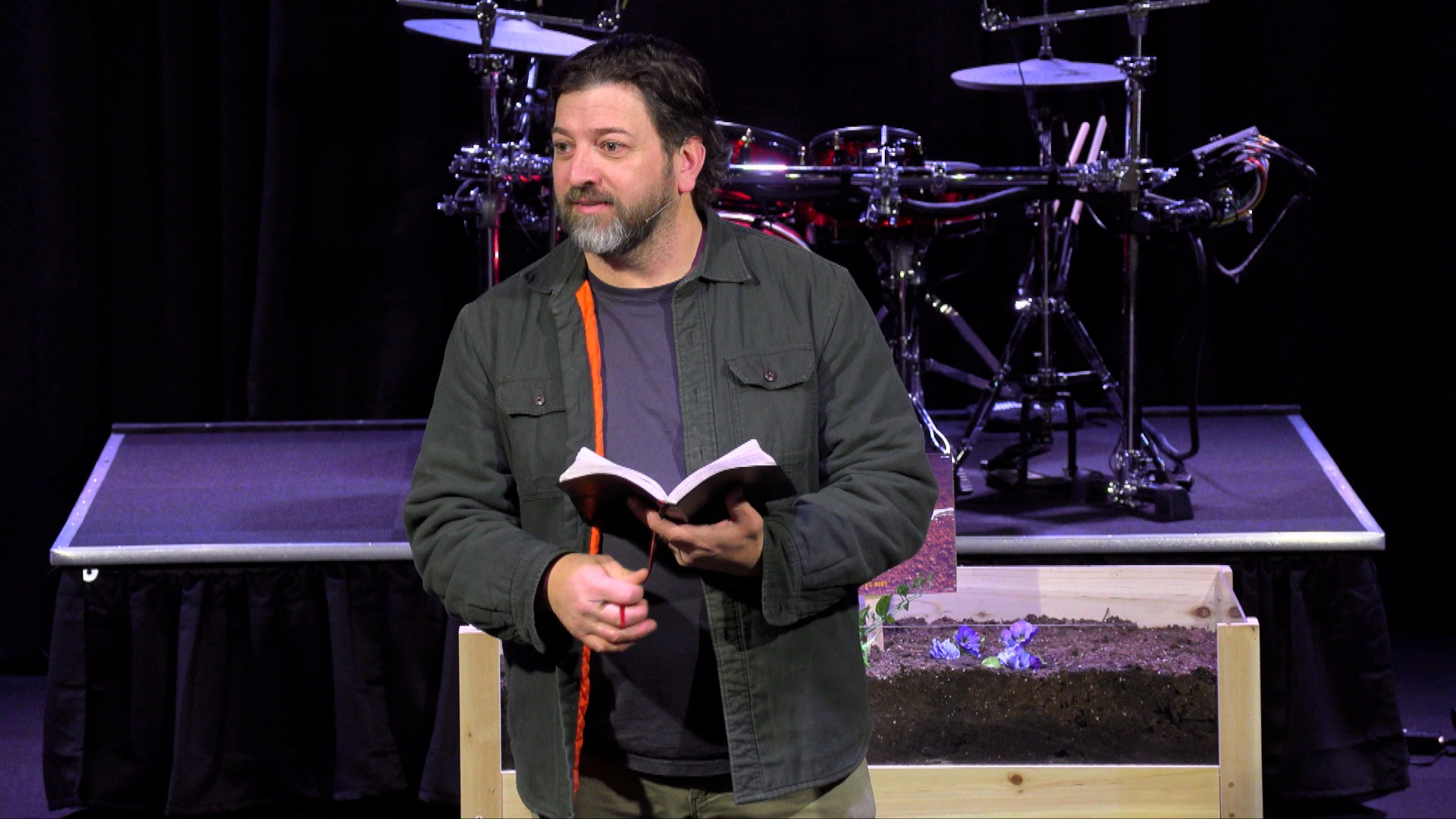Grace Orwigsburg
Sundays @ 9:00 and 10:30am
Grace Tremont
Sundays @ 9:00am
Grace Online
Sundays @ 9:00 and 10:30am
Experience the Hope of GOOD FRIDAY AND EASTER at Grace Free Church
Remember
- November 23, 2025 / Joshua Ott
We’re all really good at remembering what went wrong and almost blind to how often God has actually shown up for us. Forgetting His track record fills our hearts with fear, anxiety, and worst-case thinking, while remembering it fills us with courage and peace. When we don’t intentionally remember His faithfulness, something else takes over—control, regret, worry, or doubt—and we end up missing the good things He’s trying to lead us into. God doesn’t ask us to take blind leaps; He invites us to trust the patterns of His goodness in our lives and to remember how He’s carried us through the mess before. Faith doesn’t avoid the mess—it finds Jesus in it, remembers what He’s already done, and steps forward with a grateful, steady heart.
KEY VERSES:
- Numbers 13
- Numbers 14
- Joshua 4
- Romans 8:28
HIGHLIGHTS:
- Intro: Gratitude and our glitchy memory
- We naturally remember failures and frustrations faster than wins and blessings (the strikeouts, not the hits).
- Gratitude doesn’t just “happen”; it grows when we choose what to remember.
- Israel at the edge of the promise – Fear vs. faith (Numbers 13–14)
- God has already freed Israel from slavery in Egypt, parted the Red Sea, provided food and water, and led them by cloud and fire.
- Spies explore the promised land: it’s everything God said—overflowing with good things.
- But most of them fixate on the giants, fortified cities, and “worst-case scenario” thinking (Numbers 13:26–33).
- Caleb and Joshua see the same land, but their hearts are full of God’s track record, not their own fear (Numbers 13:30; 14:6–9).
- God’s response: “How long will they refuse to believe in me, in spite of all the signs I have performed among them?” (Numbers 14:11).
- What happens when we forget? (Numbers 14; Romans 8:28)
- They talk about going back to Egypt—back to slavery—because fear has filled the space faith was meant to occupy (Numbers 14:1–4).
- When we don’t remember God’s faithfulness, we “fill in the blanks” with panic, control, anger, or despair.
- For Israel, forgetting costs an entire generation the chance to step into the land God promised (Numbers 14:22–24).
- God’s heart is not “I’m out to punish you,” but “I’m working for your good in all things” (Romans 8:28).
- Fast-forward: A new generation and a new miracle (Joshua 4)
- Their kids are now standing at the Jordan River, facing their own obstacle at the edge of the promise.
- God parts the waters again as the priests stand in the middle with the ark (His presence) while the people cross on dry ground (Joshua 4:1–11).
- God tells them: take twelve stones from the middle of the river—the place you couldn’t handle on your own—and stack them as a memorial (Joshua 4:2–7).
- Those stones are there so future generations can ask, “What do these mean?” and hear the story of how God made a way.
- Faith doesn’t avoid the mess—it finds God right in the middle of it and refuses to let those moments fade from memory.
- Why remembering matters for your heart
- If we don’t intentionally remember, we will unintentionally forget.
- Faith fades when our memory is casual; fear grows when our problems are loud and our stories of God are quiet.
- Remembering God’s faithfulness re-fills your “heart space” with confidence, peace, and gratitude instead of dread.
- Practical ways to “stack stones” today
- Make a new list: write down concrete ways God has shown up “in the middle” of hard seasons.
- Tell someone: share those stories with your kids, friends, or small group so your courage becomes theirs.
- Make it physical: a stone on your desk, a note on your mirror, a saved screenshot—something that triggers the story.
- Above all, look back to the cross as the ultimate “memorial stone” of God’s love and faithfulness.
- Faith doesn’t avoid the mess—it remembers the God who met us in it and trusts Him with whatever’s next.
TALK ABOUT IT:
- When you look back over the last year, what comes to mind first—the negative moments or the ways God has shown up? Why do you think that is?
- Can you relate to Israel at the edge of the promised land—seeing both the “giants” and the promise at the same time? What’s your current “giant” right now?
- What tends to fill the space in your heart when you’re not actively remembering God’s faithfulness—fear, control, anger, numbness, something else?
- Describe a “middle of the river” moment in your life—when you knew you couldn’t fix it yourself, but somehow God carried you through.
- How might your decisions this week look different if you really believed God has not brought you this far just to bring you this far?
- What’s one practical “stone of remembrance” you could put in your life—a physical object, a note, a recurring reminder—that would help you remember God’s track record?
- Who in your life needs to hear one of your God-stories so their courage can grow from your remembrance?
- How does looking back to the cross as the ultimate memorial of God’s love change the way you see your current problems?
APPLY IT:
- Make a “God’s track record” list. Take 10–15 minutes this week to write down specific moments where God provided, protected, guided, or comforted you—especially in tough seasons.
- Balance the mental scoreboard. Notice when your brain replays only failures, drama, or worst-case scenarios. When that happens, deliberately bring one story of God’s past faithfulness to mind.
- Create a physical reminder. Put a stone on your nightstand, a note in your car, or a background on your phone that represents a time God “parted the waters” for you.
- Share your “stones” with someone. At dinner, in your small group, or with a friend, tell one story of when God met you “in the middle” and got you through something you couldn’t fix.
- Use new anxiety as a cue to remember. The next time worry spikes about money, health, or relationships, pause and ask, “When has God shown up for me in something like this before?”
- Pray from remembrance, not just panic. Instead of only praying, “God, help,” try adding, “You helped me when ________. I’m trusting You to be the same God now.”
- Tell a better story about your future. When you catch yourself saying, “It’s always been like this, it’ll never change,” practice saying, “Just because it’s always been this way doesn’t mean it always will be when God is in it.”
- Re-center on the cross. When you feel like God is punishing you or distant, look back to Jesus’ death and resurrection as the ultimate proof that He is for you, not against you.




Born and raised in Schuylkill County, Josh is passionate about Grace being a church that reaches the entire county. He drives the vision, content, clarity, and leadership cohesion at our church. Josh loves old Harleys, fly-fishing, and Philly sports, but not nearly as much as a he loves spending time with his family.